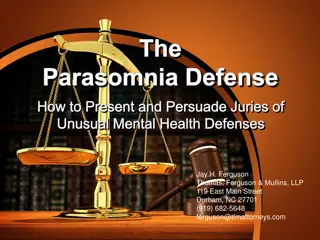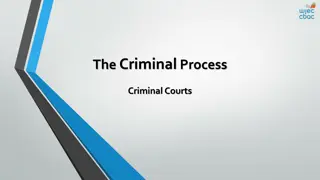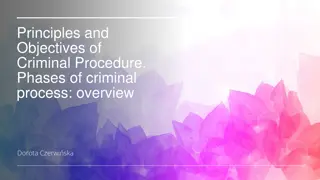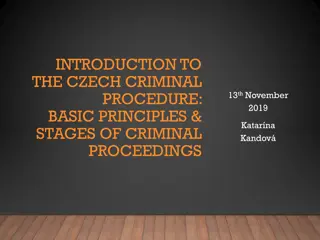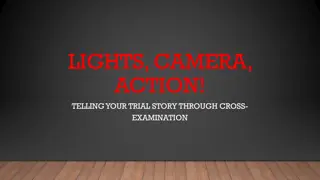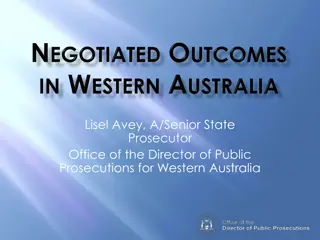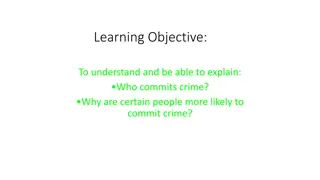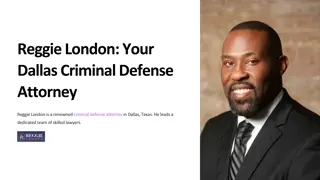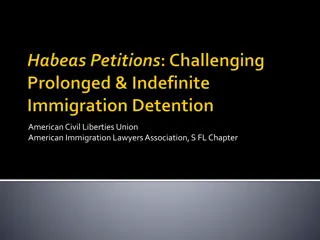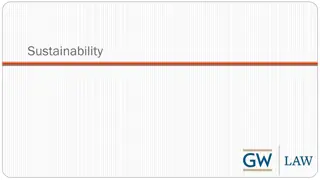Defense Strategies in Criminal Proceedings
Exploring the differences between the Anglo-American and Continental systems in criminal law defense, this text delves into the formal and material aspects of defense, highlighting the rights and tactics available to defendants in ensuring a fair trial and influencing the course of proceedings in their favor.
Download Presentation

Please find below an Image/Link to download the presentation.
The content on the website is provided AS IS for your information and personal use only. It may not be sold, licensed, or shared on other websites without obtaining consent from the author.If you encounter any issues during the download, it is possible that the publisher has removed the file from their server.
You are allowed to download the files provided on this website for personal or commercial use, subject to the condition that they are used lawfully. All files are the property of their respective owners.
The content on the website is provided AS IS for your information and personal use only. It may not be sold, licensed, or shared on other websites without obtaining consent from the author.
E N D
Presentation Transcript
Selected Problems of Czech Criminal Law Defense in Criminal Proceedings
Anglo-American vs. Continental System Different approaches depends on the character of the criminal proceedings inquisitorial v. adversary Similarities given by the nature of the criminal defense e.g. the standard of proof presumption of innocence
Anglo-American System Thorough equality of arms no preparatory proceedings, the truth comes out of the clash of the parties statements and evidence (eristic model) Jury system makes the trial more unpredictable the prosecution is more willing to negotiate System of appeal in favour of the defendant So-called two cases approach tendecy to accept plea bargain if the defense has no case
Continental system Formal equality of arms in the trial phase defense plays more of a reactive and corrective role strong role of the preparatory proceedings no equality of arms outside of court Professional judge system professional deformation better foreseeability for the prosecutor Twofold system of appeal prohibition of reformationis in peius right of the prosecutor to appeal to defendant s detriment
Defense in the Criminal Proceeding Important part of the right to a fair trial basic components (art. 6 par. 1 of CPHR) + few bonuses (art. 6 par. 2 and 3 of CPHR) Ensuring a possibly effective chance for the defendant to influence the course of the proceedings in his/hers favour Division defense in the material sense defense in the formal sense
Defense in the material sense Giving the defendant legal instruments to oppose the prosecution right to make statements right to collect and present evidence right to comment evidence right to propose certain procedures right for legal remedies [to appeal etc.] right to translation and interpretation Right to remain silent
Defense strategies and tactics Defense strategies preventing finding of quilt strategy milder verdict regarding guilt milder verdict regarding punishment Defense tactics facts based tactic material law based tactic procedural law based tactic passive tactic (remaining silent and uncooperative)
Nemo tenetur se ipsum accusare the defendant as a source of evidence vs. as a subject of the procedure not only what he/she remembers, but also fingerprints, DNA, scars, bruises etc. the law enforcement wants this info the defendant might not want to surrender it no one can be forced to attribute to his/hers own conviction ECHR Jalloh v. Germany limits: active participation the defendant may be forced to brook investigatorial procedures passively 8
Right to lie? In most continental systems immunity from perjury But not immunity from false accusation What about slander, libel, hatespeech or other verbal delicts? ECHR Brandstetter v. Austria In most systems crime of obstruction of justice forging, destroying, altering etc. evidence, abbeting to commit perjury etc. 9
Defense in the formal sense Right to be legally represented right to choose one s own attorney [always] obligatory representation by an attorney in certain cases right to be legally represented free of charge in certain cases Purpose to have a legal professional at one s side counseling, recommendations, acting on behalf of the defendant
Obligatory legal representation Obligation to be legally represented from preparatory proceedings on in cases of deprivation of liberty (custody, prison etc.) diminished legal capacity proceedings in absentia in the plea bargaing negotiations If the judge or prosecutor in the preparatory proceedings deems it necessary if the charged crime s statutory maximum exceeds 5 years in a procedure against a juvenile (never for legal entity) + special cases from the start of the trial or in execution e. g. trial after fast track preparatory proceedings
Defense Attorney and the Law Enforcement Rights to be present during investigation actions to get access to the file to get access to his/hers client [e.g. in custody] 24/7 without the presence of another person Obligations obligation to be present during the trial obligation to follow the instruction of the law enforcement and the court
Defense Attorney and the Defendant Rights to be instructed to be compensated for his work Obligations obligation to professionally represent obligation to act only in client s favour obligation to follow the instructions obligation to give counsels and to inform the client obligation to respect the attorney-client privilege
Defense Attorney and the Bar Association Rights to legally represent as a defense attorney [so called defense monopole ] Obligations to keep the dignity of the estate untouched to wear the estate s robes to be polite to the law enforcement to express himself/herself moderately and up to the point
Who may become a defense attorney attorney enrolled with the Czech Bar Association long graduate study (5 years, master s degree in law) at least 3 year of praxis as an attorney s trainee successful passing of a bar exam mandatory insurance swearing an oath trainee attorney finished legal education enrolled as a trainee with the Bar employee of a specific attorney (supervisor) only cases which are in a jurisdiction of a district court in the first instance
Limits of the Criminal Defense Defense attorney must act always in accordance with the law and the estate s regulation consult the case with the client and give his/hers best opinion respect his/hers client s instruction even if they are in discordance with the attorney s best opinion continue the representation until one of prescribed conditions are met
Limits of the Criminal Defense Defense attorney must not truth-examine client s statements and pieces of evidence lie or present forged piece of evidence follow an illegal instruction secure the evidence himself/herself run personal errands for the client restrain from the thwarting of a planned offence or offence in progress report known already committed crimes
Obstruction of justice sec. 347a of CC (1) Who for the purpouses of iniciation of court proceedings, international judicial proceedings or criminal proceedings or in the course of such proceedings presents tangible or written piece of evidence, which has a substantial importance for the decision, while knowing that it has been forged or altered, with an intent for it to be used as genuine one, or who forges or alters such a piece of evidence with intent of it being used as a genuine one, will be punished up to two yers of imprisonment. (2) Who on his own or via somebody else provides, offers or promises a benefit to another person or for another person for the purpouse of committing a criminal act of false accusation, perjury and false expert s opinion or false interpretation, will be punished by up to three years of imprisonment.
Thank you for your attention! JUDr. Jan Provazn k, Ph.D. Assistant Professor Department of Criminal Law Office: room no. 226 Consultation hours:Wednesdays 11:40 - 12:40 E:mail:jan.provaznik@law.muni.cz 20
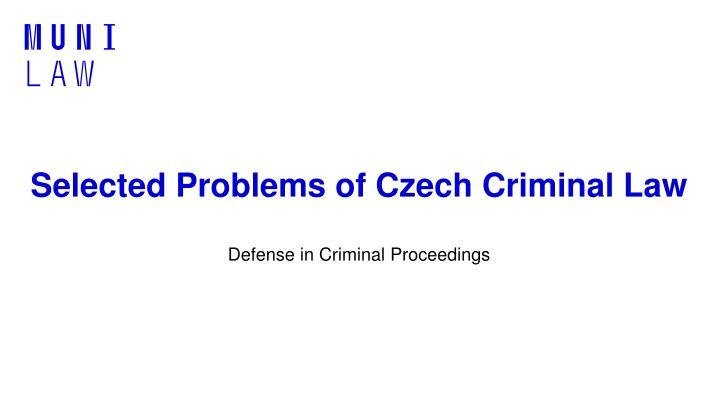

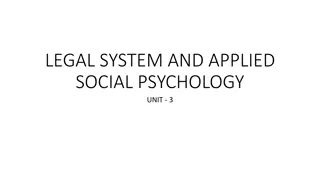
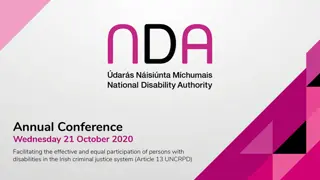
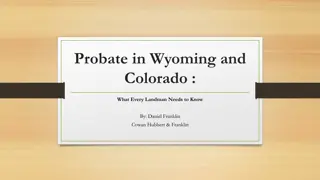
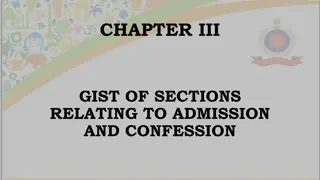
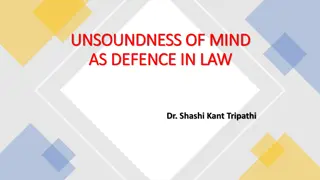
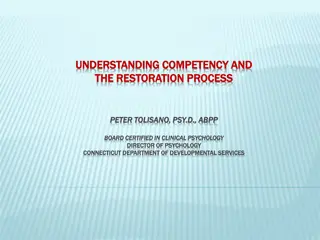
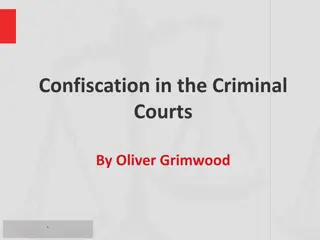
![Briefing on the Criminal Procedure Amendment Bill [B12-2021] to the Portfolio Committee on Justice and Correctional Services](/thumb/157093/briefing-on-the-criminal-procedure-amendment-bill-b12-2021-to-the-portfolio-committee-on-justice-and-correctional-services.jpg)
